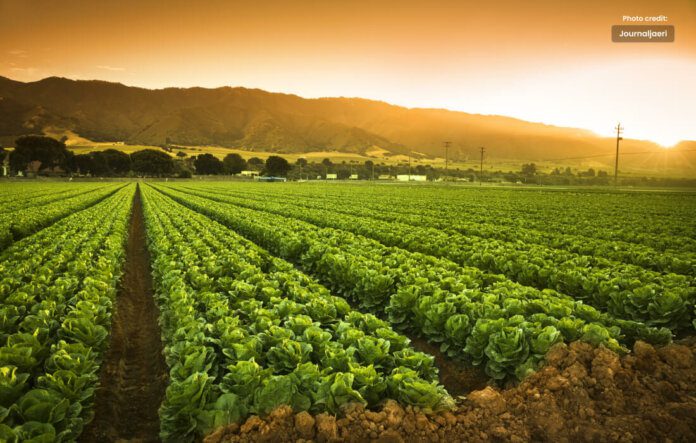BSc in Agriculture equips students with opportunities in the field.
Introduction:
In today’s rapidly evolving world, where sustainability and food security are paramount concerns, the field of agriculture has gained immense significance. Among the many academic paths available for students passionate about this field, a Bachelor of Science (BSc) in Agriculture is a comprehensive program that equips individuals with the knowledge and skills to tackle the challenges and opportunities in agriculture. This blog post delves into the fascinating realm of BSc Agriculture, shedding light on its key aspects, potential career paths, and the crucial role it plays in shaping our future.
Unveiling the BSc Agriculture Program:
A BSc Agriculture program is designed to provide students with a strong foundation in various aspects of agriculture, ranging from crop cultivation and livestock management to agricultural economics and rural development. The curriculum encompasses a blend of theoretical knowledge and practical training, ensuring that students gain a holistic understanding of the subject.
Key Subjects Covered:
-
Crop Science:
This subject covers the principles and practices of crop cultivation, including crop physiology, genetics, breeding, and agronomy. Students learn about crop management techniques, pest control, soil science, and the latest advancements in crop production technologies.
-
Animal Husbandry:
Livestock management forms an essential component of BSc Agriculture. Students learn about animal nutrition, breeding and genetics, animal health, and the management of dairy, poultry, and other livestock enterprises. They also explore emerging trends such as organic farming and sustainable animal production.
-
Agricultural Economics:
Understanding the economic aspects of agriculture is crucial for effective decision-making. Students delve into agricultural marketing, farm management, agricultural finance, and policy analysis. They learn to assess market trends, develop business plans, and analyze the economic viability of agricultural enterprises.
-
Horticulture:
Horticulture focuses on the cultivation of fruits, vegetables, ornamental plants, and medicinal herbs. Students gain knowledge about plant propagation, greenhouse technology, post-harvest management, and landscape design. This subject emphasizes sustainable practices and the integration of horticulture with other agricultural systems.
-
Agricultural Engineering:
The application of engineering principles to agriculture is vital for modern farming practices. Students explore farm machinery, irrigation systems, precision agriculture, and agricultural structures. They learn to optimize resource utilization, reduce environmental impact, and enhance agricultural productivity through innovative engineering solutions.
Potential Career Paths:
A BSc Agriculture degree opens up a multitude of exciting career opportunities. Graduates can explore roles in various sectors, including:
-
Farming and Agribusiness:
Many BSc Agriculture graduates become farmers or join agribusiness enterprises. They can manage their farms or work in positions such as farm managers, agricultural consultants, or agricultural extension officers. They contribute to sustainable farming practices, implement new technologies, and improve productivity.
-
Agricultural Research and Development:
With a solid scientific background, graduates can contribute to agricultural research institutes or private companies involved in agricultural research. They can work on developing new crop varieties, improving animal genetics, or finding innovative solutions for pest and disease management.
-
Agri-Input Industry:
The agri-input industry, including seed companies, fertilizer manufacturers, and pesticide producers, requires professionals with knowledge of agricultural science. Graduates can work in research and development, quality control, sales, or marketing roles, ensuring the availability of quality inputs to farmers.
-
Agricultural Finance and Banking:
Understanding the financial aspects of agriculture makes BSc Agriculture graduates well-suited for roles in agricultural finance and banking. They can work as agricultural loan officers, financial analysts, or investment advisors, supporting farmers and agribusinesses in accessing funds and managing their finances effectively.
-
Government and Non-governmental Organizations:
Government departments, agricultural agencies, and non-governmental organizations (NGOs) offer diverse opportunities for BSc Agriculture graduates. They can work in areas such as rural development, agricultural policy formulation, project management, or extension services, contributing to the sustainable growth of the agricultural sector.
Conclusion:
A Bachelor of Science in Agriculture (BSc Agriculture) program empowers students to make a significant impact in the agricultural sector. It equips them with a broad knowledge base, practical skills, and a deep understanding of the challenges and opportunities in agriculture. As the world faces the pressing need for sustainable food production and environmental stewardship, BSc Agriculture graduates are poised to play a vital role in shaping the future of agriculture. Whether it’s through innovative farming techniques, research and development, or policy advocacy, their contributions are essential for a resilient and prosperous agricultural sector that can sustainably feed the growing global population.
Find out more about https://rockedgeurdu.com/




